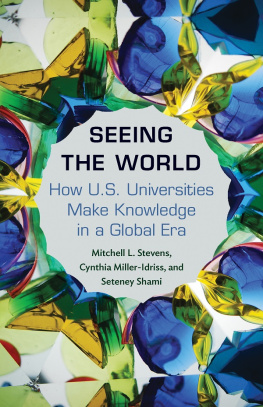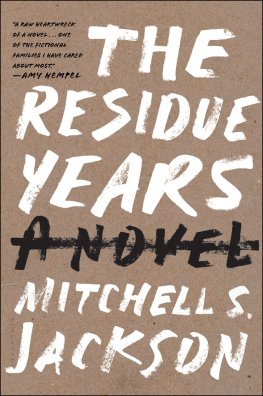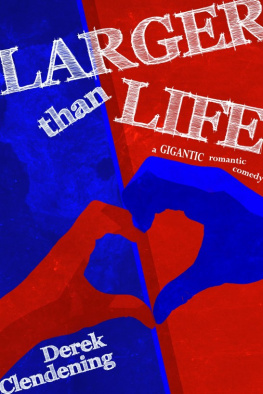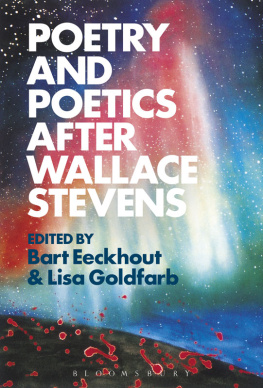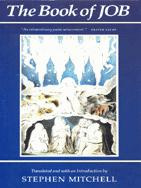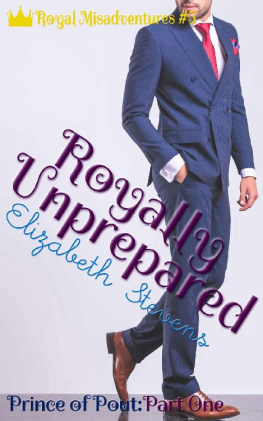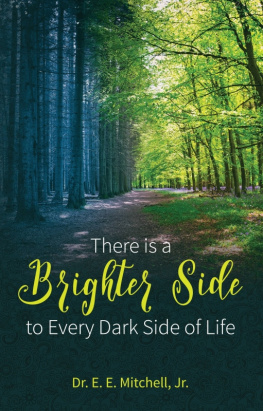Stevens Mitchell L. - Seeing the World
Here you can read online Stevens Mitchell L. - Seeing the World full text of the book (entire story) in english for free. Download pdf and epub, get meaning, cover and reviews about this ebook. year: 2017, publisher: Princeton University Press, genre: Politics. Description of the work, (preface) as well as reviews are available. Best literature library LitArk.com created for fans of good reading and offers a wide selection of genres:
Romance novel
Science fiction
Adventure
Detective
Science
History
Home and family
Prose
Art
Politics
Computer
Non-fiction
Religion
Business
Children
Humor
Choose a favorite category and find really read worthwhile books. Enjoy immersion in the world of imagination, feel the emotions of the characters or learn something new for yourself, make an fascinating discovery.
- Book:Seeing the World
- Author:
- Publisher:Princeton University Press
- Genre:
- Year:2017
- Rating:4 / 5
- Favourites:Add to favourites
- Your mark:
- 80
- 1
- 2
- 3
- 4
- 5
Seeing the World: summary, description and annotation
We offer to read an annotation, description, summary or preface (depends on what the author of the book "Seeing the World" wrote himself). If you haven't found the necessary information about the book — write in the comments, we will try to find it.
Seeing the World — read online for free the complete book (whole text) full work
Below is the text of the book, divided by pages. System saving the place of the last page read, allows you to conveniently read the book "Seeing the World" online for free, without having to search again every time where you left off. Put a bookmark, and you can go to the page where you finished reading at any time.
Font size:
Interval:
Bookmark:

SEEING THE WORLD

A list of titles in this series appears at the back of the book.
SEEING THE WORLD
How US Universities Make Knowledge in a Global Era
Mitchell L. Stevens,
Cynthia Miller-Idriss,
and Seteney Shami
Princeton University Press
Princeton and Oxford
Copyright 2018 by Princeton University Press
Published by Princeton University Press,
41 William Street, Princeton, New Jersey 08540
In the United Kingdom: Princeton University Press,
6 Oxford Street, Woodstock, Oxfordshire OX20 1TR
press.princeton.edu
Jacket art courtesy of Shutterstock
All Rights Reserved
ISBN 978-0-691-15869-3
Library of Congress Control Number: 2017945421
British Library Cataloging-in-Publication Data is available
This book has been composed in Baskerville 10 Pro and Eurostile LT Std
Printed on acid-free paper.
Printed in the United States of America
10 9 8 7 6 5 4 3 2 1
FOR STUDENTS OF PLACES, AND THEIR MENTORS
If you think of a university as sort of like a kaleidoscopeall the piecesI think the kaleidoscope is turning, as we speak, and the question of what the patterns are going to be when it stops turning is an open one.
POLITICAL SCIENTIST, SENIOR INTERNATIONAL OFFICER
CONTENTS
Our greatest debt is to the scores of individuals whose words enliven our pages. Despite their busy schedules, the faculty and administrators quoted throughout this book were engaged participants in often lengthy conversationswith strangers. We learned from each of them, and our work simply would not have happened without their contributions.
Nor would it have happened without financial support. Data collection for a pilot project in the field of Middle East studies was funded by the Ford Foundation in 2000 (grant no. 10100542). Starting in 2004, with the receipt of funding from the US Department of Educations International Research and Studies Program, the project became a large-scale endeavor focused on Middle East, Russia/Eurasia, South Asia, and Central Asia area studies centers at US universities. The Department of Education provided two successive grants for three phases of data collection and initial analysis through 2010 (grant nos. P017A040075 and P017A060034). A subsequent grant from the Andrew W. Mellon Foundation enabled further data analysis through 2014 (grant no. 31300136).
The Social Science Research Council (SSRC) has been this projects home since 2000. That has meant a great deal. The SSRC was central to the evolution of regionally focused social science in the twentieth century and continues to sustain a commitment to cosmopolitan scholarship. The vision and critical encouragement of SSRC presidents Craig Calhoun and Ira Katznelson have been invaluable to us. Marcial Godoy-Anativia, Nicolas Guilhot, and Srirupa Roy provided a critical overview of the longue dure of debates surrounding area studies.
Nazli Parvizi helped conduct data collection for the pilot study; Mary Ann Riad helped us obtain the first US Department of Education grant; and Maureen Abdelsayad coordinated the first major phase of fieldwork. Holly Danzeisen ably managed the second and third phases of fieldwork and held us all together during the many years we took to think it all through. For her patience, and our collective sanity, we thank Holly especially.
Lisa Wedeen, Reat Kasaba, and Karen Pfeifer served as steering committee members for the newly expanded project from 2004 to 2006, helping conceptualize the research and provide guidance throughout its first phase. Charles Kurzman helped us understand the potential of our inquiry for various audiences over many years.
Our thinking was informed by several SSRC-sponsored consultation meetings at the Middle East Studies Association (MESA 2000, 2003); panels at the first World Congress of Middle East Studies (WOCMES 2002) and the American Sociological Association (ASA 2011); and invited talks at Boston University, UCBerkeley, and UCDavis. The SSRC held additional consultation meetings throughout the projects tenure to present empirical research findings as they emerged. In addition to the projects steering committee members, SSRC staff members, and project researchers, attendees at the workshop in 2007 included Lisa Anderson, Laura Bier, Hoda Elsadda, Dmitry Gorenburg, Mervat Hatem, Sangeeta Kamat, David Ludden, Zachary Lockman, Amy Newhall, David Nugent, Jennifer Olmsted, Morton Valbjrn, and Ulrich Wurzel. These discussions shaped thinking about knowledge production on world regions internationally, the dynamic relationship between area studies and disciplines, and the impact of 9/11 on regional inquiry.
We thank these attendees at a 2008 consultation: Jeremy Adelman, Sada Aksartova, Selma Botman, Diana Deborah Davis, J. Nicholas Entrikin, David Frank, Linda Costigan Lederman, Michle Lamont, Vasuki Nesiah, Jeffrey Riedinger, Gideon Rose, Nancy Ruther, and George Steinmetz. A final 2009 consultation included Thomas Bender, David Engerman, Carl Ernst, Robert Glew, Kathleen Hall, Jerry Jacobs, Aly Kassam-Remtualla, Joe Miesel, Jennifer Olmsted, Nancy Ruther, Toby Alice Volkman, and Steven Wheatley.
A writing workshop at American University in 2014 included Ethan Hutt, Ashley Mears, and Celine-Marie Pascale, who read early chapter drafts and provided incisive feedback. Michle Lamont and Christopher Loss humored us with innumerable conversations. Two officially anonymous reviewers for Princeton University Press provided serial comment on full versions of the manuscript.
We owe a great deal to the projects researchers, who, supervised by Cynthia Miller-Idriss, undertook the bulk of data collection and coding in three separate phases from 2005 to 2007: Elizabeth Anderson Worden, Nick Gozik, and Anthony Koliha. All of them devoted weeks to campus visits while balancing the demands of their dissertations and other professional commitments. Jeremy Browne played a key role in unlocking the US Department of Education EELIAS/IRIS database and informing the overall methodological architecture of the endeavor. Thanks also go to our other researchers, including Lucine Taminian, who conducted the pilot research survey. Alice Horner performed critical background research and compiled an impressive bibliography. Additional research assistance, much of it funded through New York Universitys Steinhardt School, was provided by doctoral students Jennifer Auerbach, Christian Bracho, Shane Minkin, Naomi Moland, and Nina Pessin-Whedbee. Stanford doctoral student Jesse Foster contributed meticulous data cleaning and coding support.
Special thanks go to Jonathan Friedman, who, in addition to providing research assistance over the past eight years, served as the projects data manager from 2013 to 2017. In this role Jon assumed the daunting task of making all project evidence interoperable, synthesizing the work of many involved in the project before him and ensuring consistency and accuracy of data presentation.
Mitchell Stevens is additionally grateful to several parties at Stanford University. The Graduate School of Education provided a sabbatical and course release that made it possible to complete the first full book manuscript and its substantial revision. The Institute for Research in the Social Sciences (IRiSS) gave him a physical site for the writing and idyllic working conditions. The Scandinavian Consortium for Organizational Research (SCANCOR) hosted innumerable conversations about this work, and a living case study in a novel means of scaffolding cosmopolitan social science. Many Stanford colleagues lent vision, encouragement, and practical advice: Karen Cook, Tom Ehrlich, Mark Granovetter, Aishwary Kumar, David Labaree, Harry Makler, Dan McFarland, John Meyer, David Palumbo-Liu, Woody Powell, Chiqui Ramirez, Gabriella Safran, Dick Scott, Parna Sengupta, Sarah Soule, Robert Wessling, Kren Wiggen, John Willinsky, and Xueguang Zhou. Niecolle Felix administered finances and proofread with aplomb. Beyond Stanford, Elizabeth Armstrong, Elisabeth Clemens, Carol Heimer, Jerry Jacobs and Jason Owen-Smith have been dedicated thought partners. And whether in New York, Minneapolis, or Palo Alto, Arik Lifschitz has enabled this work with his inimitable, patient wisdom.
Next pageFont size:
Interval:
Bookmark:
Similar books «Seeing the World»
Look at similar books to Seeing the World. We have selected literature similar in name and meaning in the hope of providing readers with more options to find new, interesting, not yet read works.
Discussion, reviews of the book Seeing the World and just readers' own opinions. Leave your comments, write what you think about the work, its meaning or the main characters. Specify what exactly you liked and what you didn't like, and why you think so.

